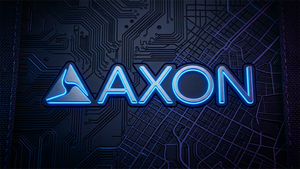The "Indonesia Electric Vehicle Charging Equipment Market Outlook to 2026: Driven by Influx of Investment from Abroad Coupled With Increasing Focus on Emission Control" report has been added to ResearchAndMarkets.com's offering.
The revenue of EV Charging Equipment market grew at a CAGR of 499% during 2017 to 2021, witnessing a growth rate of 901% in 2020 from 2019 and 180% in 2021 from 2020 and Charging Equipment Revenue is expected to grow at a CAGR of 44% from 2022 to 2026.
Overview of Electric Vehicle Industry in Indonesia
Indonesia is the fourth largest country in the world, with a population of nearly 250 million people. With fast economic growth and rapid urbanization in Indonesia, it is projected that more people will acquire a personal vehicle for mobility. The transportation sector is one of the most significant contributors to CO2 emissions in Indonesia, second to the industrial sector.
In 2019, Presidential Regulation Number 55 Year 2019 regarding the Acceleration Program for Battery Electric Vehicles for Road Transportation was enacted. This regulation acts as the legal umbrella for Indonesian electric vehicle development and creates a domino effect for several ministries to start electric vehicle (EV) projects in Indonesia. The Battery Electric Vehicles sales grew at a CAGR of 719% during 2017 and 2021.
Overview of Electric Vehicle Charging Equipment Industry in Indonesia
With the fast economic growth of 5% in 2019, which is predicted to rebound in 2022 after the COVID-19 pandemic, and the high urbanization rate, it is expected that the necessity for convenient mobility will surge. In June 2021, the Minister of Energy and Mineral Resources mentioned an ambitious national target requiring that only electric motorcycles be sold from 2040 forward and that all vehicles sold from 2050 be Evs.
Competitive Landscape in Indonesia EV Charging Market
Currently, the competition in the EV Charging Space in Indonesia is monopolistic in nature, with PLN being designated the responsibility of constructing and monitoring SPKLU's throughout the country. Private players are looking forward to expanding their operations in Indonesia, but are not doing so due to unaddressed concerns regarding the profitability of EV charging operations, tightly regulated electricity tariffs, etc.
Drivers and Impediments to growth
Plenty of nickel reserves in Indonesia gives natural advantage for battery manufacturing, which is one of the most essential components of an EV. Tax Reductions, Fiscal Incentives, and Tax Holiday given by government of Indonesia increases the opportunities for EV manufacturers.
Despite growing development of public transport infrastructure, ownership of personal transportation is still favored by most Indonesians and 70% of the people are willing to own an EV. Indonesia provides cheapest electricity in the region. Compared to the price of petroleum at around USD 0.9/L, electricity in Indonesia only costs for USD 0.1/kwh. This can give future EV users great economic benefits, which could also be the main driver for EV to further develop in Indonesia.
Key Segments Covered in Indonesia EV Charging Equipment Industry
EV Charging Market Size by
- Revenue
- Number of charging stations
Indonesia EV Charging Equipment Industry By
- Type of Chargers
- Type of Charging
- Type of Vehicle
- Geographic Demand
- Type of Manufacturer
- Sales Channels
Product Analysis
- 4W Chargers
- 2W Chargers
- Charging Stations
Pricing Analysis
- 4W Chargers pricing
- 2W Chargers pricing
- Charging Stations pricing
Key Target Audience
- Electricity Supplier
- EV Manufacturers
- EV Charging Equipment Manufacturers
- EV Charging System Operator
- Demand side Transport Operators
- Government Bodies
Time Period Captured in the Report
- Historical Period: 2016-2021
- Forecast Period: 2022-2026F
Key Topics Covered:
1. Executive Summary
2. Market Overview of EV Charging Industry in Indonesia
2.1. Overview of the Indonesian EV Market
2.2. Overview of EV Adoption in Indonesia
2.3. Overview of the Indonesian EV Charging Market
2.4. EV Charging Infrastructure Value Chain
2.5. Ecosystem of Major Entities in EV Charging Equipment Market
2.6. Difference between SPKLU and SPBKLU
2.7. Business Models of SPKLU
3. Market Size of EV Charging Industry
4. Market Segmentation of EV Charging Equipment Industry in Indonesia
5. Industry Analysis of the Indonesia EV Market
5.1. Trends in Indonesian EV Market
5.2. Issues and Challenges in the Indonesian EV Market
5.3. SWOT Analysis of Indonesian EV Market
5.4. Government Regulations
5.5. Growth Drivers of the Indonesian EV Market
6. Product Analysis
6.1. Type of EV Charging Station
6.2. Type of Plugs
6.3. Description of Plug Socket-Outlets
6.4. Description of EV Charging Types by Output Current
6.5. Description of general standards of charging
6.6. Charging Stations Infrastructure in Indonesia
7. Pricing Analysis
8. Competitive Analysis of the Indonesia EV Market
9. Case Study
9.1. Case study of PLN
9.2. Case study of EESL
9.3. Case study of Alfen
10. Future Outlook and Projections of the Industry, till 2026
11. Analyst Recommendations
12. Research Methodology
Companies Mentioned
- Delta
- ABB
- Schneider Electric
- Powerindo
- Bambang Djaja
- Phihong
- ANS EVSE
For more information about this report visit https://www.researchandmarkets.com/r/x1b9ek
View source version on businesswire.com: https://www.businesswire.com/news/home/20220705005671/en/
Contacts
ResearchAndMarkets.com
Laura Wood, Senior Press Manager
press@researchandmarkets.com
For E.S.T Office Hours Call 1-917-300-0470
For U.S./CAN Toll Free Call 1-800-526-8630
For GMT Office Hours Call +353-1-416-8900






